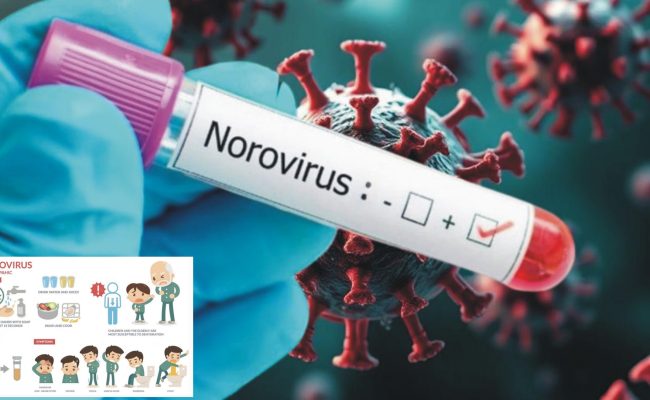The World Ambassador
Norovirus outbreaks are on the rise, with the U.S. Centers for Disease Control and Prevention (CDC) reporting 91 outbreaks during the week of December 5—an increase from 69 the previous week. Although these numbers may seem small, experts caution that many cases go unreported. With the surge in cases, it’s essential to understand how the virus spreads, recognize its symptoms, and know when to seek medical help. Dr. Leana Wen, a wellness expert and emergency physician, shares advice on protecting yourself and preventing the spread of norovirus.
What is Norovirus?
According to CNN, Dr. Wen explains that norovirus is the leading cause of foodborne illness in the United States, responsible for 19 to 21 million illnesses annually. It results in over 2.2 million outpatient visits, 465,000 emergency department visits, and 109,000 hospitalizations each year. Commonly known as the “winter vomiting bug” or “Norwalk virus,” norovirus is highly contagious and often causes outbreaks in crowded environments like cruise ships, schools, daycares, and jails.
How Does Norovirus Spread?
Norovirus spreads easily through contact with an infected person or contaminated surfaces. You can contract the virus by sharing food, drinks, or utensils with an infected individual, or by touching surfaces that have been contaminated and then touching your mouth. The virus can also spread through tiny droplets of vomit or fecal material that land on surfaces.
What Are the Symptoms and How Long Do They Last?
Symptoms of norovirus include nausea, vomiting, diarrhea, stomach cramps, fatigue, mild fever, chills, headaches, and muscle aches. These symptoms often appear suddenly and can be very uncomfortable. Most people recover within one to two days, and there are typically no long-term effects. However, dehydration is a significant concern, particularly for those who struggle to keep fluids down, and may require medical attention.
What Should You Do if You Think You Have Norovirus?
Dr. Wen emphasizes that there is no specific treatment for norovirus, as it is a viral infection. Antibiotics are ineffective, and there is no antiviral medication or vaccine available. The main focus should be on staying hydrated. Adults should drink water, juice, or sports drinks, while children can benefit from electrolyte solutions like Pedialyte. Nursing mothers should continue breastfeeding even if they or their children are experiencing gastrointestinal symptoms.
Most people recover without needing medical intervention, but if symptoms persist or worsen, or if dehydration becomes severe, medical attention should be sought.
When Should You See a Doctor?
Dr. Wen advises seeking medical help if you experience symptoms such as blood in your stool, high fever, shortness of breath, or if symptoms don’t improve after a few days. If vomiting prevents you from keeping fluids down, or if a baby has fewer wet diapers than usual, consult a healthcare professional. Vulnerable individuals—such as young children, the elderly, and those with underlying health conditions—should contact their doctor early during their illness.
How Can You Prevent the Spread of Norovirus?
To reduce the spread of norovirus, Dr. Wen suggests several precautions: people with vomiting, diarrhea, or stomach cramps should avoid preparing food for others and should not handle food or utensils for at least two days after symptoms have passed. Handwashing is essential, especially before eating, as surfaces like doorknobs and serving spoons can harbor the virus.
If someone in your household has norovirus, be mindful that the virus can spread easily among family members. Regularly wash hands with soap and water, particularly before eating and after using the bathroom. Disinfect infected surfaces with bleach-based solutions to kill the virus.
Additionally, be aware of other foodborne illnesses, such as E. coli, salmonella, and listeria. Dr. Wen offers additional food safety tips:
- Avoid drinking raw milk or eating raw or undercooked meat. Always use an internal thermometer to ensure food reaches the recommended cooking temperature.
- Do not eat perishable food left out for more than two hours.
- Wash vegetables and fruits thoroughly and keep them separate from raw meat.
- Ensure that anyone preparing or serving food washes their hands well. Avoid preparing food or sharing meals with others while experiencing gastrointestinal symptoms.
As norovirus outbreaks continue to rise, staying informed about prevention, symptoms, and when to seek medical help is key to keeping you and those around you safe.


